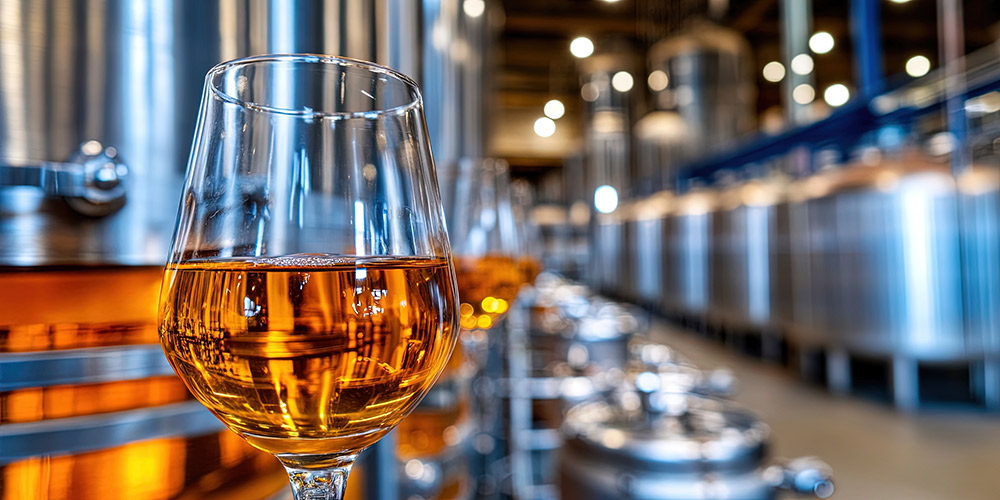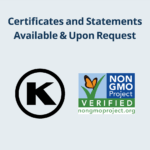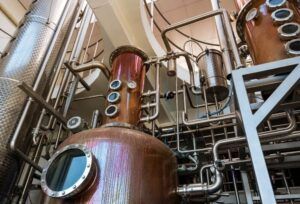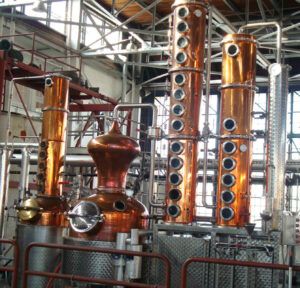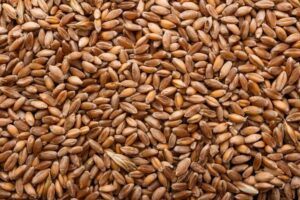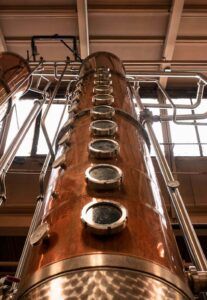Grain Alcohol
What Is Grain Alcohol?
Grain alcohol—also known as neutral grain spirit or ethanol—is a highly concentrated, clear, and odorless form of alcohol distilled from fermented grains. At Sasma, we specialize in supplying top-quality grain alcohol sourced from corn, rye, wheat, barley, and rice. Whether you’re launching a new spirits brand or sourcing ingredients for industrial production, our grain alcohol delivers exceptional purity at competitive prices.
It serves as the foundational ingredient for many distilled spirits, most notably vodka and gin, due to its neutral profile. While rum is sometimes associated with similar uses, it is not considered a grain alcohol as it is typically made from sugarcane or molasses.
How Is Grain Alcohol Used?
Grain alcohol has a wide range of applications, both in the beverage industry and across industrial sectors:
- Spirits Production: It’s commonly used to redistill gin and create vodka. It also serves as a base spirit for infused liqueurs like limoncello.
- Food & Beverage: Neutral alcohol is used in the production of vanilla extract, liqueur-filled chocolates, sweeteners, and vinegars.
- Pharmaceutical & Medical: Grain alcohol is valued for its antiseptic properties and is used in hand sanitizers, medicinal tinctures, and extraction processes.
- Cosmetics: It serves as a carrier or base for perfumes, lotions, and personal care products.
At Sasma, our grain alcohol is tailored for versatility—ideal for both artisanal production and high-volume manufacturing.
Contact Our Sales Team
Sasma can supply you with a variety of packaging types when it comes to grain alcohol. We offer grain alcohol in bulk in 1000-liter IBC containers and ISO tanks of 25.000 liters.
When you contact [email protected], we will provide more information about our packaging and pricing. As one of the world’s largest independently owned suppliers of bulk premium alcohol and spirits, we have an extensive network of premium alcohol distilleries worldwide. Therefore, we can source raw materials and various grades of alcohol from all over the world at the most competitive prices.
Creating neutral grain spirits involves a precise, multi-step process that results in a highly concentrated, clear, and odorless alcohol. At Sasma, we source premium grains and apply repeated distillations to ensure exceptional purity in every batch.
Here’s how the process works:
STEP ONE
Choosing the Raw Material
The journey begins by selecting the natural grain that will be fermented and distilled. The most common grains used for producing neutral grain spirits include corn, rye, wheat, barley, and rice. The choice of grain can subtly influence the characteristics of the final spirit.
STEP TWO
Fermentation of the Chosen Grain
Next comes fermentation, a biological process where yeast converts the sugars found in the grain into alcohol and carbon dioxide. Yeast acts as the key catalyst in breaking down the grain’s sugars into ethanol and other natural byproducts. This step lays the chemical foundation for the production of grain alcohol.
STEP THREE
Distillation
Once fermentation is complete, the resulting liquid undergoes distillation—a process that separates alcohol from water and other impurities by heating the mixture. Because alcohol has a lower boiling point than water, it evaporates first. The alcohol vapors are then cooled and condensed back into liquid form. Depending on the grain and desired output, this may involve pot stills or column stills. Repeating the distillation process increases the purity of the final product, resulting in the neutral grain spirit used in both beverage and industrial applications.
What alcohol is made from Grain?
Grain alcohol, known as grain neutral spirit (GNS), is a high-proof alcohol distilled from fermented grains. It’s a versatile base used in the production of various spirits:
- Vodka: Derived from wheat or corn, vodka utilizes grain alcohol as its base. The neutral flavor profile of grain alcohol contributes to vodka’s characteristic clean and smooth taste.
- Gin: Production often starts with grain alcohol, which is then redistilled with botanicals, primarily juniper berries, to impart its distinct flavor. Grain alcohol ensures a neutral foundation that allows the botanical flavors to shine.
- Rum: This spirit is traditionally made from sugarcane byproducts like molasses or sugarcane juice. Therefore, rum is not considered a grain alcohol.
Does grain alcohol have gluten?
Distilled grain alcohol is generally considered gluten-free, even when produced from gluten-containing grains like wheat, rye, or barley. The distillation process effectively removes proteins, including gluten, resulting in a product safe for individuals with gluten sensitivities. At Sasma, we maintain the highest standards in quality and compliance.
How strong is grain alcohol?
Grain alcohol is known for its high alcohol content. It is typically distilled to a high proof, usually between 190-192 proof (95-96% alcohol by volume). This high potency makes grain alcohol suitable for use as a base in various spirits and industrial applications.
Additional Information
ISO 9001, ISO 22000, Lloyd’s Register
Available upon request:
Kosher, Non GMO
Ready To Order?
Looking for more information about our products? Contact Sasma’s sales team today.
Current
Certificates



Certificates & Statements
Available Upon Request





Related Products
Reviews
“
Sasma is dedicated to efficiency and effectiveness
European Distillery
Working with Sasma since 2015
Sasma's sales agent speaks our language!
Liquor company in South America
Working with Sasma since 2016
working with Sasma since 2015
European Distillery
Sasma's dedication to efficiency and effectiveness
Client in Asia
working with sasma since 2014
Sasma's sales agent speaks our language!
Liquor company in South America
working with sasma since 2016

